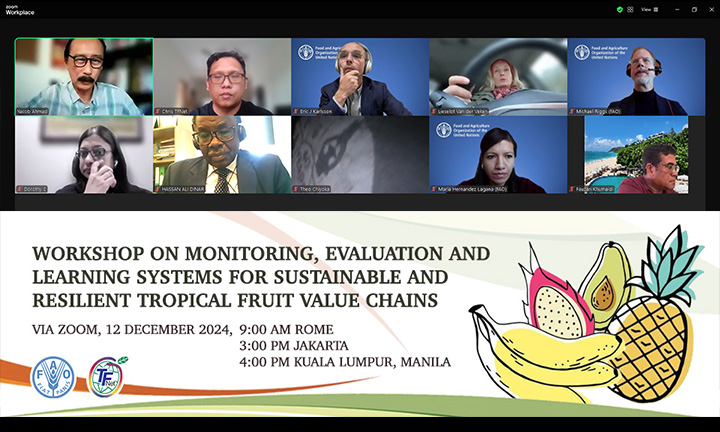by Eric Jesper Karlsson and Yacob Ahmad
A monitoring, evaluation and learning (MEL) framework is a strategic tool designed to continuously assess and verify the direction of goals or targets set out by businesses. It helps gauge the status and performance as well as anticipate future developments to guide the way forward. By using a structured approach, MEL assesses the effectiveness and efficiency of the activities and strategies that your business has implemented to achieve specific goals.
MEL systems are important because they enable producers, businesses and other value chain stakeholders to:
- Generate evidence of their sustainability and resilience performance.
- Enhance decision-making processes based on robust evidence.
- Comply with international regulations and due diligence requirements.
Adopting MEL systems aligns with Responsible Business Conduct (RBC) practices, by helping companies identify and manage risks, monitor progress and impacts of their interventions, and drive improvement through learning.
An online workshop on “Monitoring, evaluation and learning (MEL) for sustainable and resilient tropical fruit value chains was organized by FAO’s Responsible Fruits Project with co-organizer, International Tropical Fruits Network (TFNet) on Thursday 12 December 2024.
The aim of the workshop was to provide and understanding of MEL systems based on FAO’s new technical guide “Monitoring, evaluation and learning: generating evidence on resilience and sustainability in the tropical fruit sector” which highlights MEL as a key tool for improving decision-making, meeting market requirements, and supporting responsible business conduct and due diligence across value chains.
A total of 21 participants attended the workshop, including 2 from Africa, 3 from Europe and 16 from Asia. The attendees included 8 from the private sector, 4 from universities, 3 from other international organizations and 6 from FAO and TFNet. The workshop had almost equal representation from both genders.
After opening remarks by Yacob Ahmad (TFNet) and Jesper Karlsson (FAO) who gave a general description of MEL and the applications, the workshop proceeded with key presenter and main author of the guide María Hernández Lagana (FAO), explaining how MEL systems can help businesses track progress on sustainability and resilience. Participants later discussed the importance of data for transparency and supporting sustainability claims, as well as the need for simplified MEL systems that are accessible to small-scale producers. Concluding the session, Dr. Dorothy Chandrabalan (TFNet) emphasized the importance of MEL for businesses aiming to strengthen their resilience and sustainability.
As the tropical fruit sector continues to evolve, MEL can play a crucial role in driving sustainability and resilience. With MEL integrated into business operations, companies are better equipped to meet market demands, enhance transparency, and make informed, data-driven decisions.
The FAO technical guide, “Monitoring, evaluation and learning: generating evidence on resilience and sustainability in the tropical fruit sector”, is available at: https://openknowledge.fao.org/items/9f0a49b9-da6d-4e0a-acc0-dfe195e85a93

